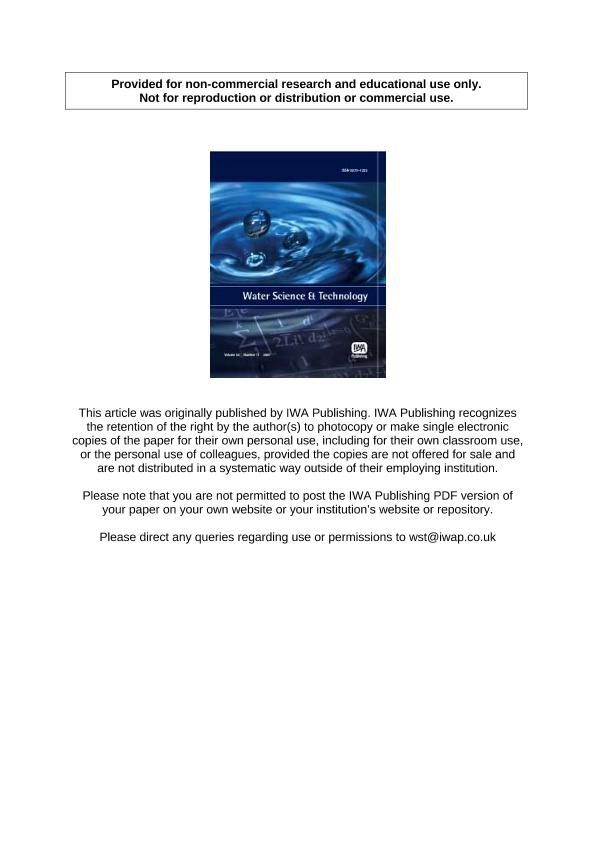Artículo
Impact of some Herbicides on the Biomass Activity inBiological Treatment Plants and Biodegradability Enhancement by a photo-Fenton process
Fecha de publicación:
01/2013
Editorial:
Iwa Publishing
Revista:
Water Science And Technology
ISSN:
0273-1223
Idioma:
Inglés
Tipo de recurso:
Artículo publicado
Clasificación temática:
Resumen
In recent years, the use of agrochemicals has increased because they are essential for profitable agricultural production. Herbicides are heavily demanded compounds and among these, the most marketed are 2,4-D, atrazine and acetochlor. They have characteristics that can cause problems to humans and the environment. Therefore, it is necessary to design systems that can reduce these compounds to harmless molecules. This work aims at evaluating the possibility of incorporating these herbicides into degradable effluents in a biological treatment system, without reducing its efficiency. For this purpose, studies of organic matter degradability in the presence of these agrochemicals were performed. A synthetic effluent based on glucose and mineral salts was inoculated with microorganisms. Glucose consumption and biomass concentration were assessed. Subsequently, preliminary studies were performed to test the viability of degradation of the most harmful compound with an advanced oxidation process (AOP). The results showed that the incorporation of these herbicides into degradable effluents in a biological treatment system has a negative impact on microorganisms. Therefore, the application of an AOP, such as the Fenton or photo-Fenton processes, prior to a biological treatment was found to degrade these substances to simpler and less toxic molecules. Key words | advanced oxidation process, biological treatment, herbicides
Palabras clave:
Advanced Oxidation Process
,
Biological Treatment
,
Herbicides
Archivos asociados
Licencia
Identificadores
Colecciones
Articulos(INTEC)
Articulos de INST.DE DES.TECNOL.PARA LA IND.QUIMICA (I)
Articulos de INST.DE DES.TECNOL.PARA LA IND.QUIMICA (I)
Citación
Benzaquén, Tamara Belén; Benzzo, M. T.; Isla, Miguel Angel; Alfano, Orlando Mario; Impact of some Herbicides on the Biomass Activity inBiological Treatment Plants and Biodegradability Enhancement by a photo-Fenton process; Iwa Publishing; Water Science And Technology; 67; 1; 1-2013; 210-216
Compartir
Altmétricas




